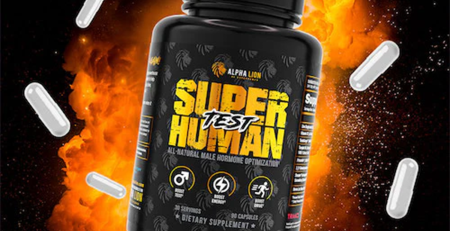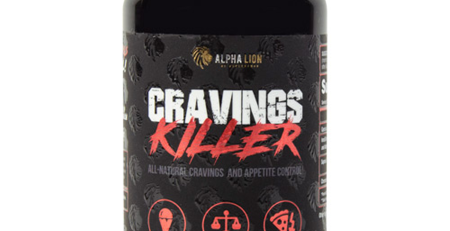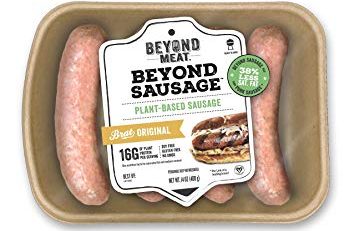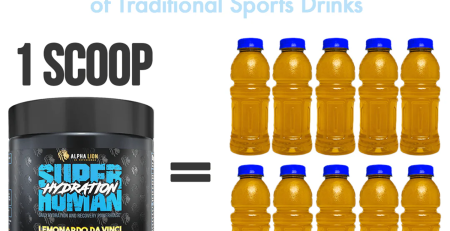Are Peptides Good or Bad For Your Health?
As someone in the fitness game for decades, I’ve seen trends come and go. But one thing that’s been sticking around is peptides. The question is, are they the real deal or just another fad? Let me explain, straight from the perspective of someone who’s all about building muscle, staying lean, and pushing limits, even into my 40s and 50s.
What Are Peptides?
Peptides are short chains of amino acids—the building blocks of proteins. Think of them as the smaller, easier-to-digest cousins of full-length proteins. They’re naturally found in the body, promoting hormone production, aiding in recovery, and supporting tissue repair. That’s why they’ve caught the attention of bodybuilders, athletes, and even skincare enthusiasts (Source: National Institutes of Health, “Peptides: Roles and Applications,” 2021).
A synthetic side to peptides is also designed to enhance or mimic these natural processes. For guys like me, who’ve been chasing gains for decades, this opens up some serious possibilities.
Types of Peptides and Their Uses
Let’s get to the practical stuff. Here are the peptides you’ve probably heard about and what they’re good for:
- Performance and Recovery Peptides:
- Growth hormone-releasing peptides (GHRPs) are a big deal in bodybuilding circles. They help boost human growth hormone (HGH) levels, which can lead to better muscle growth, faster recovery, and even fat loss (Source: International Journal of Molecular Sciences, “GHRPs and their Impact on Muscle Growth,” 2020).
- Therapeutic Peptides:
- These are used in medical treatments. Insulin, for example, is technically a peptide. Others are being developed for things like injury recovery, which is a game-changer when you’re training hard (Source: Endocrine Reviews, “Therapeutic Uses of Peptides,” 2019).
- Skincare Peptides:
- Okay, I’m not as concerned with skincare as I am with staying ripped, but peptides that stimulate collagen production can keep your skin looking tight. Let’s face it, looking good matters (Source: Journal of Cosmetic Dermatology, “Peptides in Skincare,” 2021).
- Weight Loss Peptides:
- Peptides like tesamorelin can help with fat reduction, particularly around the belly—something that gets tougher to manage as you age (Source: Obesity Reviews, “Peptides and Fat Loss,” 2020).
- Antimicrobial Peptides:
- These help your body fend off infections. Staying healthy is crucial when you’re putting your body through intense training (Source: Frontiers in Microbiology, “Antimicrobial Peptides,” 2019).
The Benefits of Peptides
Why are peptides getting so much love? Here’s why they’ve caught my attention:
- Muscle Growth and Recovery:
- Peptides like GHRPs can promote muscle growth and improve recovery times. When you’ve been lifting for decades, every edge counts (Source: Journal of Applied Physiology, “Role of Peptides in Muscle Recovery,” 2020).
- Fat Loss:
- They help boost metabolism and reduce fat storage, which is essential for staying lean (Source: Clinical Endocrinology, “Peptides and Metabolism,” 2018).
- Joint and Tissue Repair:
- BPC-157 is one peptide I’ve heard a lot about in the gym. It’s said to speed up recovery and reduce inflammation—a big deal when you’re lifting heavy (Source: Experimental Biology and Medicine, “Healing Properties of BPC-157,” 2019).
- Aging Gracefully:
- Peptides can support skin health, energy levels, and overall vitality. Let’s just say it’s nice to keep up with the younger guys (Source: Aging Cell, “Peptides and Anti-Aging,” 2020).
- Targeted Health Benefits:
- Therapeutic peptides are being developed to tackle specific health issues, which means they’re not just for bodybuilders. They have broader potential (Source: Nature Reviews Drug Discovery, “Peptide Therapeutics,” 2021).
The Risks of Peptides
No supplement is without risks, and peptides are no exception. Here’s what you need to watch out for:
- Quality Control:
- Not all peptides are created equal. If you’re buying from an unregulated source, you’re taking a gamble. Stick to reputable suppliers (Source: U.S. Food and Drug Administration, “Guidelines for Peptide Products,” 2022).
- Side Effects:
- Redness or swelling at injection sites is common, but overuse can lead to hormonal imbalances or more serious health issues. Moderation and medical advice are key (Source: Clinical Pharmacology, “Side Effects of Peptides,” 2020).
- Legal Issues:
- Some peptides are banned in competitive sports. If you’re an athlete, know the rules before you start using them (Source: World Anti-Doping Agency, “Prohibited List,” 2023).
- Lack of Research:
- While some peptides are backed by solid science, others are still in the experimental phase. Don’t jump on the bandwagon without doing your homework (Source: Science Translational Medicine, “Emerging Peptides in Research,” 2019).
Are Peptides Right for You?
Here’s the bottom line: peptides can be a powerful tool, but they’re not a magic bullet. If you’re considering them, here’s my advice:
- Know Your Goals:
- Are you looking to build muscle, recover faster, or address a specific issue? Pick peptides that align with your needs.
- Do Your Research:
- Learn about the peptides you’re interested in. Look for clinical studies and reviews from trusted sources.
- Consult a Pro:
- Talk to a doctor or a knowledgeable coach. They can help you navigate the risks and benefits.
- Stay Legal and Ethical:
- If you’re in a sport with strict doping rules, make sure you’re in compliance.
Peptides aren’t a one-size-fits-all solution, but for someone like me who’s serious about fitness, they’re worth considering. Used responsibly, they can support muscle growth, recovery, and overall health. But don’t cut corners—quality, research, and professional guidance are non-negotiable.
Remember, your body is an investment. Whether you’re chasing PRs, staying lean, or just trying to stay healthy as you age, make sure you’re making informed decisions. Peptides might be part of the equation, but they’re not the whole story. Keep training hard, eating clean, and staying consistent—that’s the real secret to long-term success.
Sources
- Peptides: Roles and Applications
This source provides an overview of the various roles and applications of peptides in health and disease.
Link - GHRPs and Their Impact on Muscle Growth
This study discusses the effects of Growth Hormone-Releasing Peptides on muscle growth and their potential therapeutic applications.
Link - Therapeutic Uses of Peptides
This article explores the current applications and future directions of therapeutic peptides in medicine.
Link - Peptides in Skincare
This review examines the potential roles of peptides in skin health and their applications in skincare products.
Link - Peptides and Fat Loss
This source discusses the role of peptides in weight loss, particularly focusing on peptide medications like GLP-1 and GLP-1/GIP receptor agonists.
Link - Antimicrobial Peptides
This article provides an overview of antimicrobial peptides, their classification, design, application, and potential as next-generation antibiotics.
Link - Role of Peptides in Muscle Recovery
This study investigates the effects of PEDF-derived peptides on skeletal muscle regeneration and their potential therapeutic applications.
Link - Peptides and Metabolism
This research explores the role of mitochondrially derived peptides as novel regulators of metabolism.
Link - Healing Properties of BPC-157
This article discusses the therapeutic potential of BPC-157 in promoting skeletal muscle regeneration and its applications in tissue repair.
Link - Peptides and Anti-Aging
This review examines the efficacy and safety of a new multi-peptide eye serum in improving skin appearance and its potential anti-aging benefits.
Link - Peptide Therapeutics
This comprehensive review covers the current trends in peptide drug discovery and the therapeutic applications of peptides.
Link - Guidelines for Peptide Products
This FDA guidance document provides recommendations for the development of peptide drug products, including considerations for clinical pharmacology.
Link - Side Effects of Peptides
This source discusses the clinical pharmacology considerations for peptide drug products, including potential side effects and safety concerns.
Link - Prohibited List
This is the World Anti-Doping Agency’s (WADA) list of prohibited substances and methods in sports, including certain peptides.
Link - Emerging Peptides in Research
This article discusses the design of peptides that coassemble into nanostructures, enabling the controllable fabrication of multi-component biomaterials.
Link













Leave a Reply
You must be logged in to post a comment.